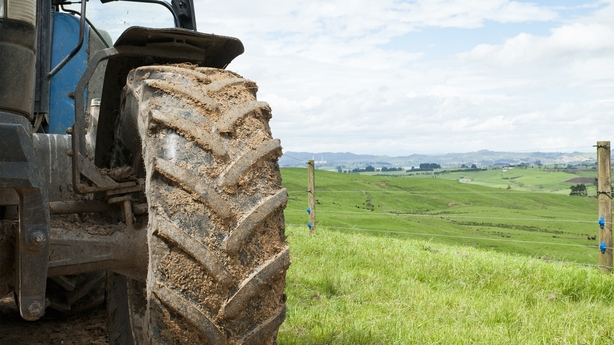New figures from the Health and Safety Authority (HSA) show that the number of people who died in work-related incidents last year rose 13% to 53, despite many workplaces being closed for long spells due to Covid-19 restrictions.
However, there was also a substantial decline in the number of non-fatal incidents reported to the authority, a reduction it attributes to the impact of the Covid-19 public health measures.
The number of fatal incidents was the highest since 2015 when 56 people lost their lives.
More than half of those who died last year were self-employed with 18 of those working in agriculture, forestry and fishing, seven in construction, two in wholesale and retail trade and one in accommodation and food service.
A further 12 of those who lost their lives were employees and 13 were non-workers.
We need your consent to load this rte-player contentWe use rte-player to manage extra content that can set cookies on your device and collect data about your activity. Please review their details and accept them to load the content.Manage Preferences
Overall, the largest number of work-related fatalities occurred in agriculture, forestry and fishing.
The most common triggers associated with work-related fatalities were loss of control of means of transport which led to 30% of the deaths, fall from height which was associated with 13% of deaths and fall of an object from above or the victim entering a dangerous area, both of which precipitated 11% of deaths.
Eighteen, or a third of all the deaths involved people over the age of 65, continuing an increasing trend of older victims that began in 1990.
Five were aged under 18 years, and 11 were aged between 45 and 54 years.
"Unfortunately, we have seen work-related fatalities happening to victims from all age groups," said HSA Chief Executive Dr Sharon McGuinness.
"Of the 13 non-workers to die in work-related fatalities in 2020, five were aged under 18 years old. This drives home the need for appropriate procedures to be put in place to protect everyone in a workplace, be they employees, customers or visitors."
7,417 non-fatal incidents were reported to the authority over the 12 months, down 21% on the 9,358 recorded in 2019.
Reductions were recorded in every economic sector except agriculture, forestry and fishing which accounted for 23.3% of incidents.
94% of the non-fatal incidents involved employees.
The information is contained in the HSA's Annual Review of Workplace Injuries, Illnesses and Fatalities for 2020, published today alongside the agency's annual report.
It shows that last year 5,416 onsite Covid-19 inspections were carried out between 18 May and 31 December to check for compliance with the Government's Work Safely Protocol.
The authority found a 92% compliance rate with the requirement to have control measures in place, but just 78% adherence to the need to have a response plan prepared.
The site visits took place across a wide range of sectors, including the HSA’s priority sectors of healthcare and construction, with inspections also taking place in high-risk sectors such as manufacturing, retail and wholesale, based on public health advice.
1,457 complaints were received in the course of the year in relation to Covid-19 Return to Work and Work Safely Protocols.
The authority also supported public health experts with their management of outbreaks across a range of sectors and workplaces.
Overall, the HSA carried out 9,135 inspections last year, and completed 1,160 investigations.
In 65% of cases where inspections and investigations took place, enforcement was also taken.
A total of 13 successful prosecutions were made and fines of €1.327m were imposed.
"More people are now aware of the importance of health and safety in the workplace. But health and safety must continue to be a top priority - as it can and will save lives," said Dr McGuinness.
"Proper risk assessments and health and safety considerations must be implemented in all workplaces to ensure everyone’s safety. No job is worth a loss of life, injury or illness."
The HSA’s Workplace Contact Unit handled 28,684 contacts in 2020, 39% more than in 2019, with over a third being requests for information in relation to Covid-19.
The HSA said more than 52,000 online and safety courses were taken last year while large increases were also recorded in users of the BeSmart and FarmSafely programmes - the highest level on record and up from 60% in 2019.

The Irish Farmers' Association has said people need to rethink safety and urged farmers to check their machinery is operating correctly and that they have a clear line of sight where they work.
Speaking on RTÉ's Drivetime, IFA Farm Family Committee chair Caroline Farrell said the highest number of fatalities occur in accidents involving machinery and livestock.
She said there is a big potential for accidents on farms unless the situation is managed properly.





